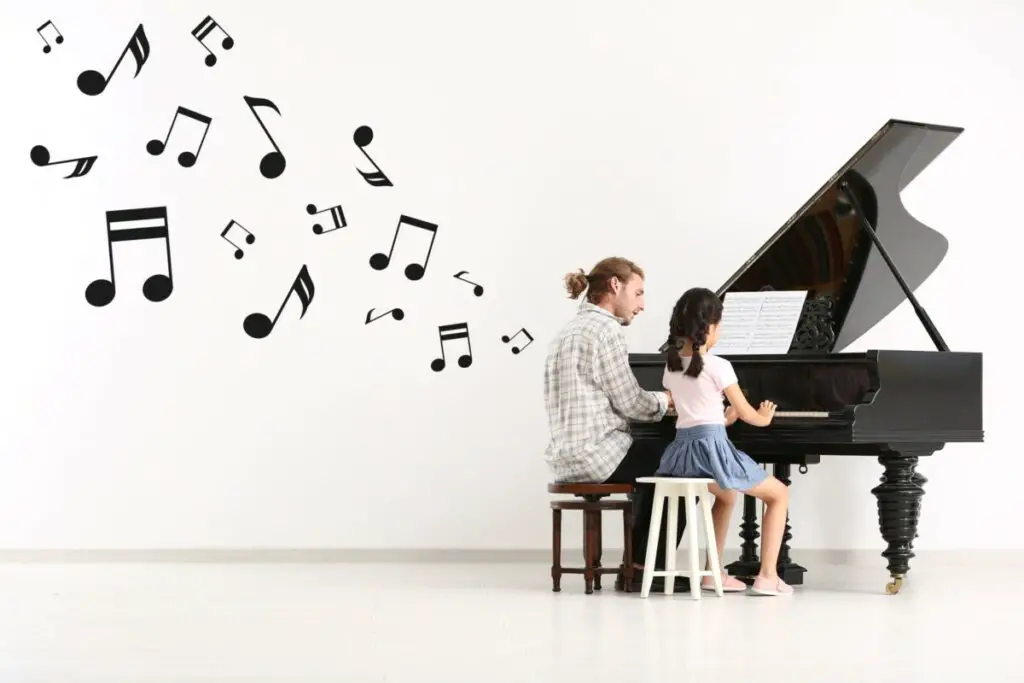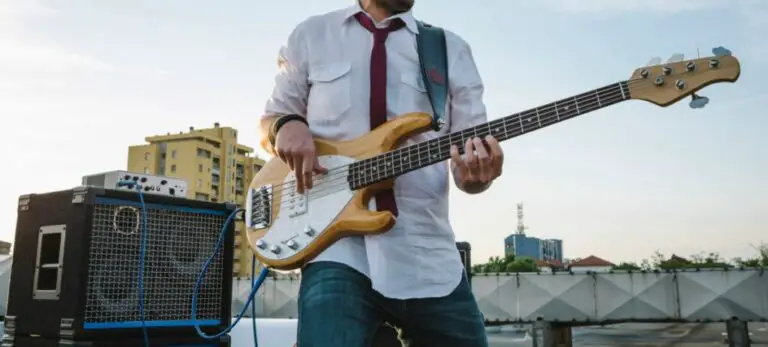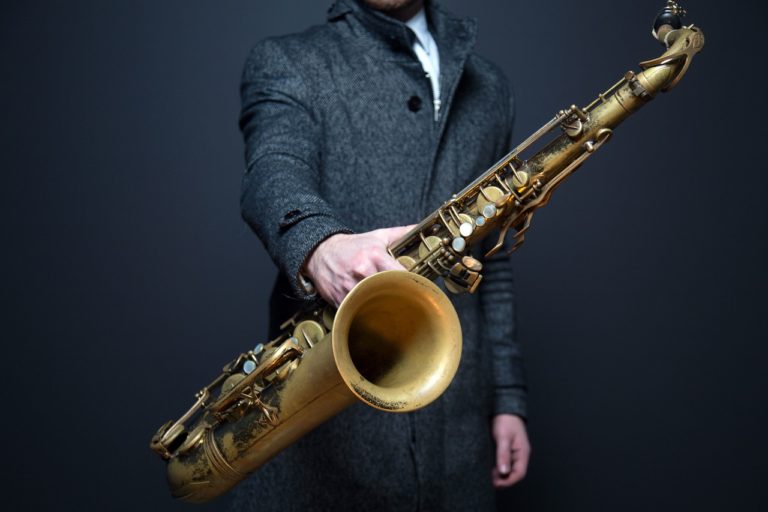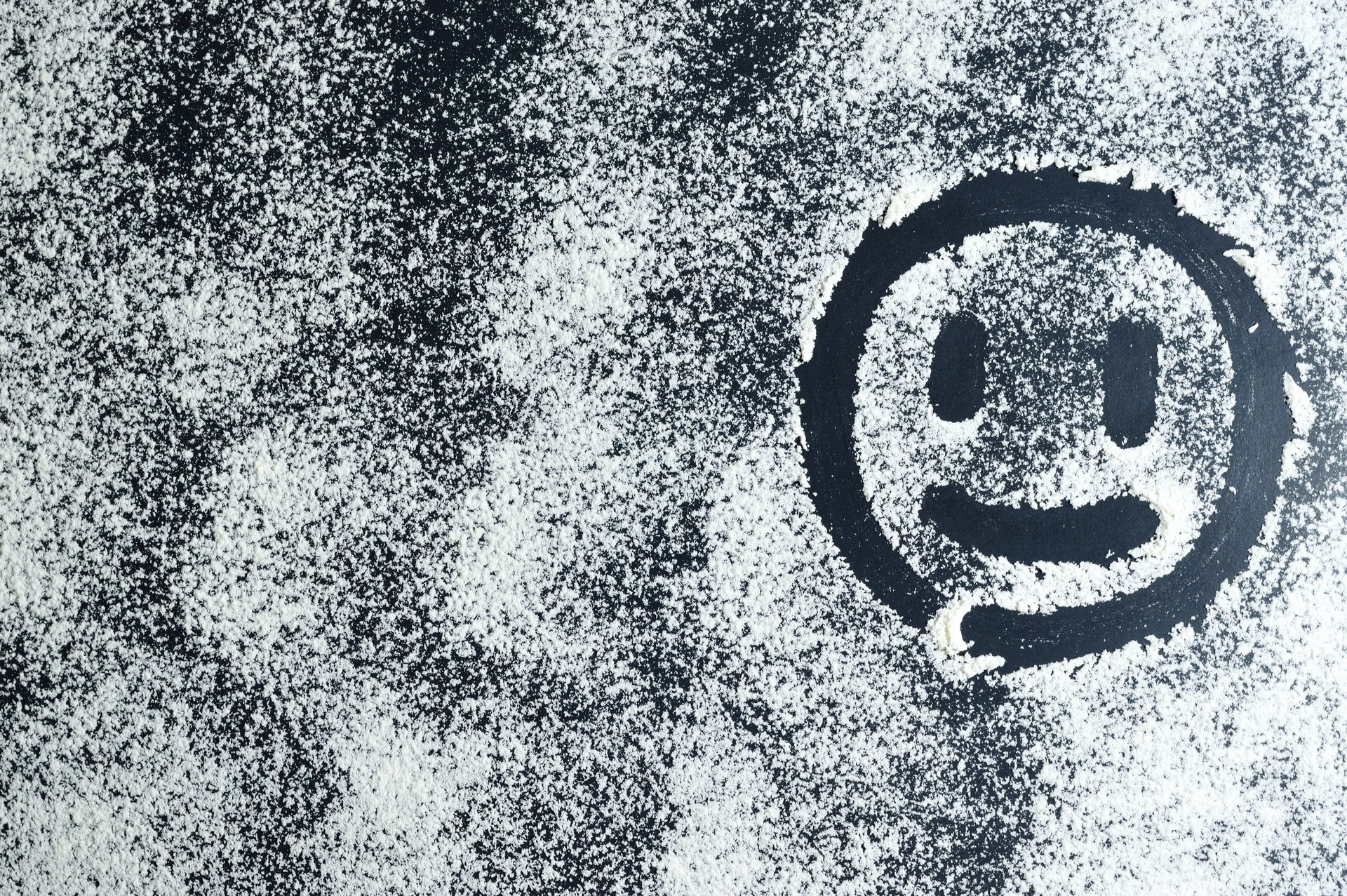How Long Does it Take to Learn Piano
The piano is an instrument that has been around for centuries and has been a staple of many genres of music ever since, especially classical music. Everyone knows what a piano sounds and looks like; however, few know how long it takes to learn. So, how long does it take to learn the piano?
Learning how to play the piano takes six months or more. To learn faster, practice daily for at least 30 minutes. Mastering the piano will require years of effort and dedication. Having formal piano lessons will differ in length from self-taught lessons.
The piano is a beautiful instrument accessible to anyone wanting to learn. This article will explore how long it takes to learn the piano at both amateur and professional levels. We will also learn where each phase of piano learning takes place for an average novice piano player.
Becoming a Good Piano Player
When starting, many piano learners are unfamiliar with aspects of the piano, such as the major and minor keys, how to navigate one’s fingers between notes, and the proper use of the three pedals at the base of the piano.
These are new grounds for the learner, and they must be familiar with them before anything else.
The First Two Months
By the first two months of learning how to play the piano daily, the learner would have learned how to play some songs that include only the left or right hand. They may have started learning how to use both hands. However, most traditional lessons involve playing music with one hand to get used to the motion and rhythm.
Once both hands are familiar with their respective notes and patterns, integrating these two will come into play, and learning to play in sync will be critical.
The primary goal of the first two months is to develop knowledge of fundamental musical theories, motor coordination, and how notes are valued and measured.
3-5 Months
The progression between 3-5 months will show progress in using both hands for playing various musical pieces and challenging themselves to experiment with different tempos.
The piano player will also have learned to read music effectively and understand the notes, scales, and other musical terminology by nature. This includes sight-reading (playing through reading directly from the music sheet) and transposing (transitioning minor and major keys).
The average piano player would’ve also learned a steady routine for practicing the piano during lesson breaks. This includes 30 minutes to an hour a day. This daily commitment will pay off in the later stages of piano playing.
Overall, the 3-5 months will be the bulk of piano learning progression before the final sixth month of learning how to play the piano.
The Sixth Month
When the final sixth month comes around for the piano player, they would’ve learned all the basics of piano playing at a beginner level.
By the sixth month, piano playing should become second nature. In other words, the piano player plays with fluidity and precision with barely any hint of hesitation when changing notes, transposing, and sight-reading. Again, everything learned during the 3-5 month period will be significantly enhanced and honed.
Six months is the halfway mark of the beginner level, and this is the same time that many piano players will decide to either stop playing or continue toward the first-year milestone.
The first six months are crucial in starting a potential piano career. But everyone learns at different rates.
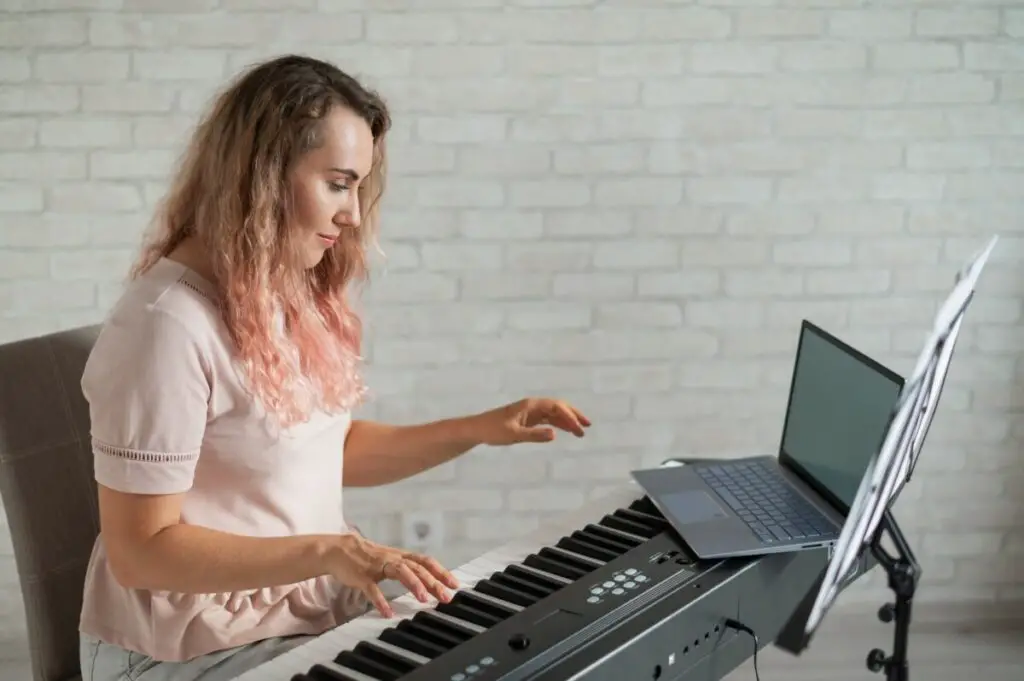
The Learner’s Dedication When Becoming A Good Piano Player
Despite the six months required to become a good piano player, learning how to play the piano will depend on the individual’s dedication to the instrument and how often they practice for those six months.
Those who have successfully learned the piano at an acceptable level within those six months are the ones who practice about 30 minutes to an hour a day. These piano players want to become familiar with the material and hope to continue playing the piano later in life.
This is a general idea of a piano player’s dedication to the instrument; everyone is different regarding their passion for playing it.
The time it takes to learn how to play the piano will be relative to their commitment, current skill level to learning the instrument, and whether or not they want to achieve milestones such as year marks.
Becoming an Ongoing Piano Player
When it comes to learning how to play piano at a higher level after six months, it will depend on the piano player’s enthusiasm to learn advanced skills in piano playing.
The basics will continue to be used, but in addition to these, advanced learners will have to increase the time they practice daily (2-3 hours), explore advanced musical theories, and be willing to challenge themselves with many genres of music rather than their preferred ones.
An ongoing piano player may continue for up to a year or more. Again, they decide whether or not they want to commit to this instrument and learn more than the basics of piano playing.
Another way of seeing this is the desire to reach certain milestones.
Six months to a year is considered beginner’s level, 3-4 years is intermediate, and 5+ years is advanced. These are the general milestones that a piano player can reach if committed to the instrument.
The opportunity to learn the piano further will be available to those who want to excel in their current skill level.
Is It Easier To Learn The Piano If You Know Another Instrument?
Learning how to play the piano will be easier for someone who already knows music theory, tempo, and other skills. They may also play another instrument which will enhance their learning progress in taking up the piano.
For example, for guitarists, shifting to learning how to play the piano will be a smooth transition as guitar and piano provide similar written formats, such as music sheets written in treble or bass clef. In other words, piano music sheets will be familiar to a trained guitarist.
The primary adjustment that a guitarist will need to get used to is the piano’s key setup, the orientation of the instrument, and how to operate both hands on the keys.
In this situation, for an experienced musical artist, advancement in piano progression may be quicker.
Within 3-5 years, those with a musical background can become exceptionally fluent in piano.
They won’t be at a professional level within those years. However, they can excel greatly to that level if continued practice is applied.
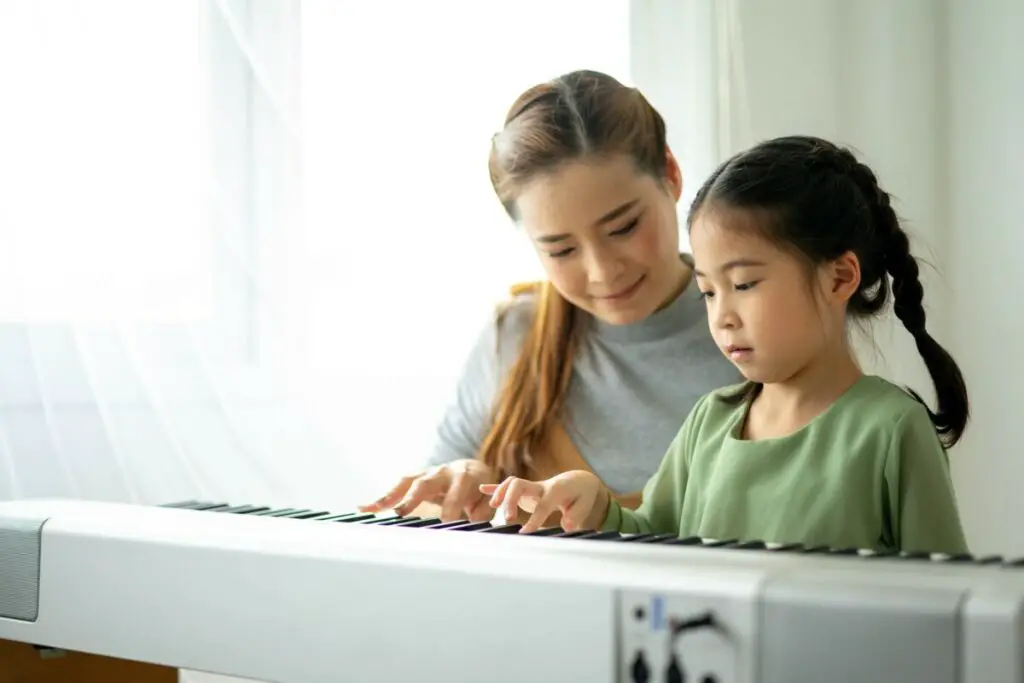
What About Self-Taught Piano Players?
Self-taught piano players wish to learn to play the piano on their terms. This means no formal lessons with a teacher will be involved. Some choose this method to avoid lesson costs or provide a flexible “schedule.”
Self-teaching can be extremely fun and frustrating.
How Much Longer Does It Take For Self-Taught Players To Learn Piano?
Self-taught lessons for piano playing can be a rewarding task on their own. However, it will take more than six months to get to an average piano player’s level.
The reason is that with self-taught lessons, one usually learns through observation, not through direct consultation with a piano player. This means they will usually not ask for help. Instead, they will watch video tutorials or painfully learn the materials through internet sites.
They also may not follow a strict schedule of when to play, resulting in an unstructured, non-committed plan. Because of the lack of a structured program for piano lessons, self-taught players tend to play more than what they should per day, quickly diminishing their motivation to play in the future. In other words, playing too much in short bursts will cause burnout.
At least 30 minutes daily will complete the job efficiently.
The Second Problem With Self-Teaching Piano
Another reason why self-teaching how to play the piano doesn’t match the learning progression compared to traditional piano players is that we want to skip the “boring” parts of piano learning.
This means that we rather skip over to the more challenging or preferred songs and go from there. This is detrimental as some songs contain materials that the self-taught individual will be unfamiliar with, expanding their potential.
This is perhaps what will slow many self-taught piano players down the most. They are likelier to “improvise” to learn techniques, potentially getting bad habits.
Improvising isn’t bad; however, a formerly taught piano player can use improvising based on their accumulated knowledge of piano playing techniques.
How Long Does It Take To Learn Other Instruments?
The guitar is another instrument that is a staple in many genres of music. It would be surprising to find any piece without the utilization of a guitar. Guitars are everywhere in the music world, whether it’s bass, electric, or acoustic.
Like learning to play piano, the guitar will require about 3-6 months of practice to become proficient.
A harmonica is a small and simple instrument. This can be one of the best instruments to learn within six months as it is easily portable and provides a unique musical sound.
Harmonicas are often played with jazz, blues, American folk music, and more.
A flute is a standard instrument used in orchestral music and marching bands. Like the harmonica, it’s easily portable, and its beautiful sounds make it a choice instrument to learn. Other than taking a few months to be proficient in the flute, some say producing a single sound will take a week or two.
The ukelele is much like a guitar in how they operate. This Portugal-invented instrument is commonly associated with Hawaii and is a popular instrument. You can learn the basics in a few minutes, but it can take up to four months to understand completely.
The Cajon drum is a percussion instrument that only requires the user to hit it with either the hands or knees to produce a unique drum sound. The basics can be learned within a few hours or weeks. Other drums can take the same amount, but some may take months to become proficient.
These and many instruments follow similar milestones to piano playing and may help new learners understand what the piano is about regarding length.
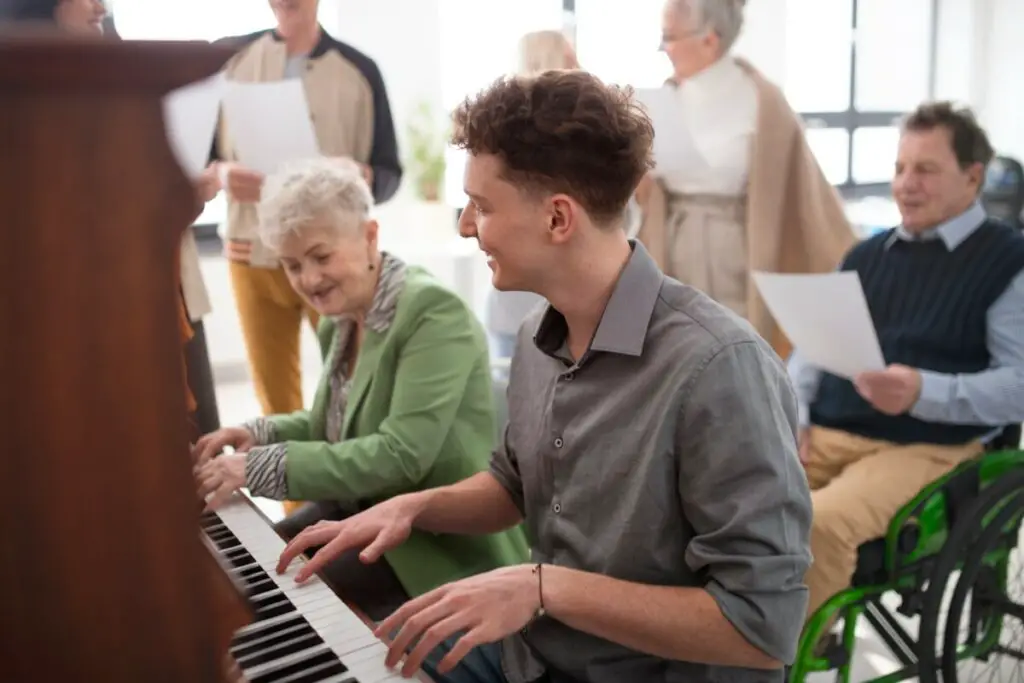
Building a Lifetime Commitment To Learning Piano
Though we have harped about when someone can play the piano within a specific timeframe, learning to play the piano is a lifetime experience.
Six months is a decent time to learn the piano. However, even professionally trained players constantly learn new techniques to enhance their skills.
It’s best never to assume that once a milestone is reached, the piano player is now at an intermediate or advanced level. Those formally taught will not always keep up with the routine and reflect those milestones.
Like all other skills, no piano skills are perfect and ongoing efforts to improve should be applied.
Ultimately, learning to play piano within six months is all one must commit to. Further commitment will come once the novice piano player has had good practice and experience.
Now that we have addressed how long it takes to learn to play the piano, we hope one can understand the process of developing piano-playing skills. We also wish for one to further explore the opportunities attached to piano playing, such as testing their skills in a public setting.
Whatever the case, learning to play the piano will not cost an arm and a leg to get started.

